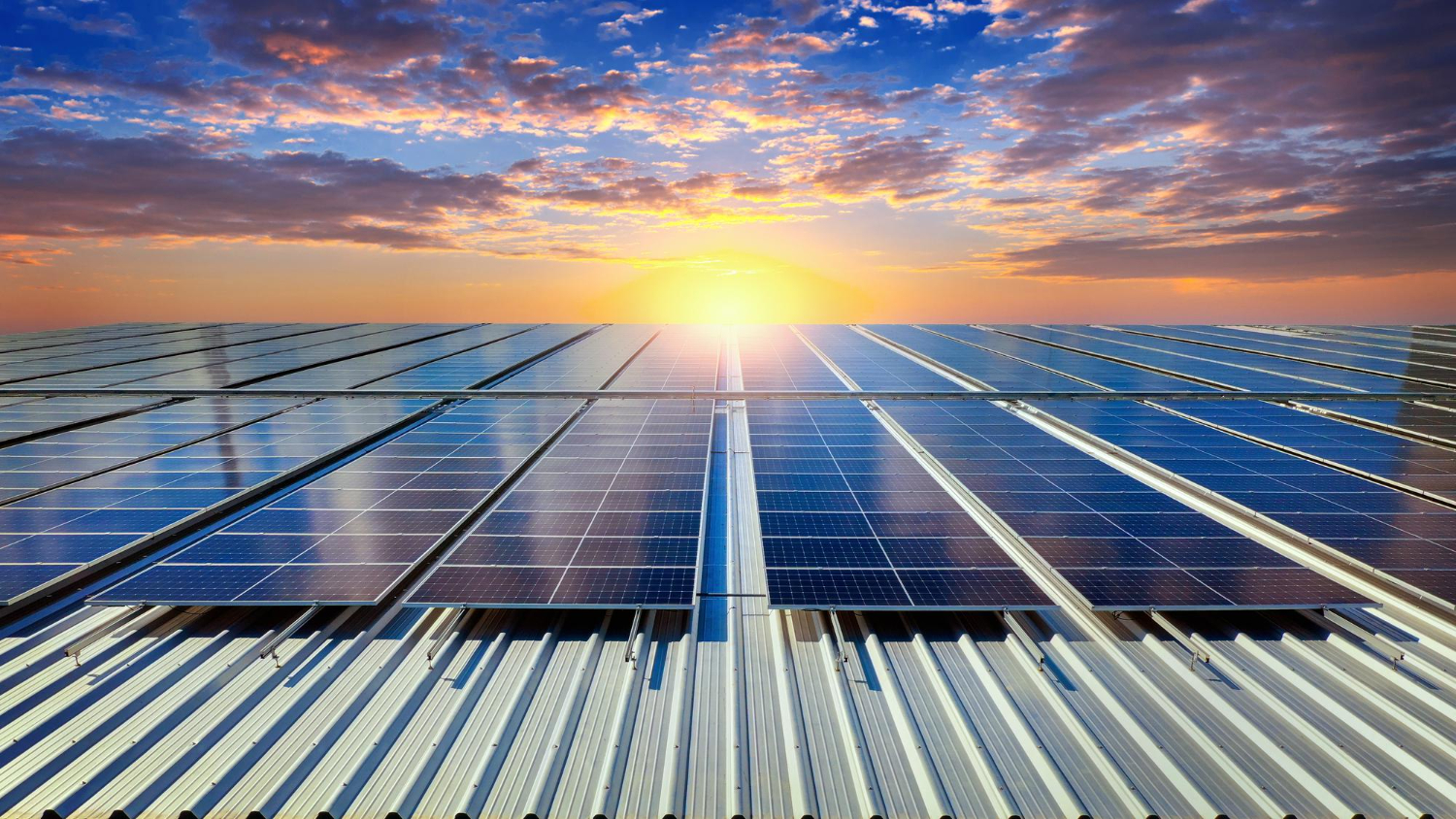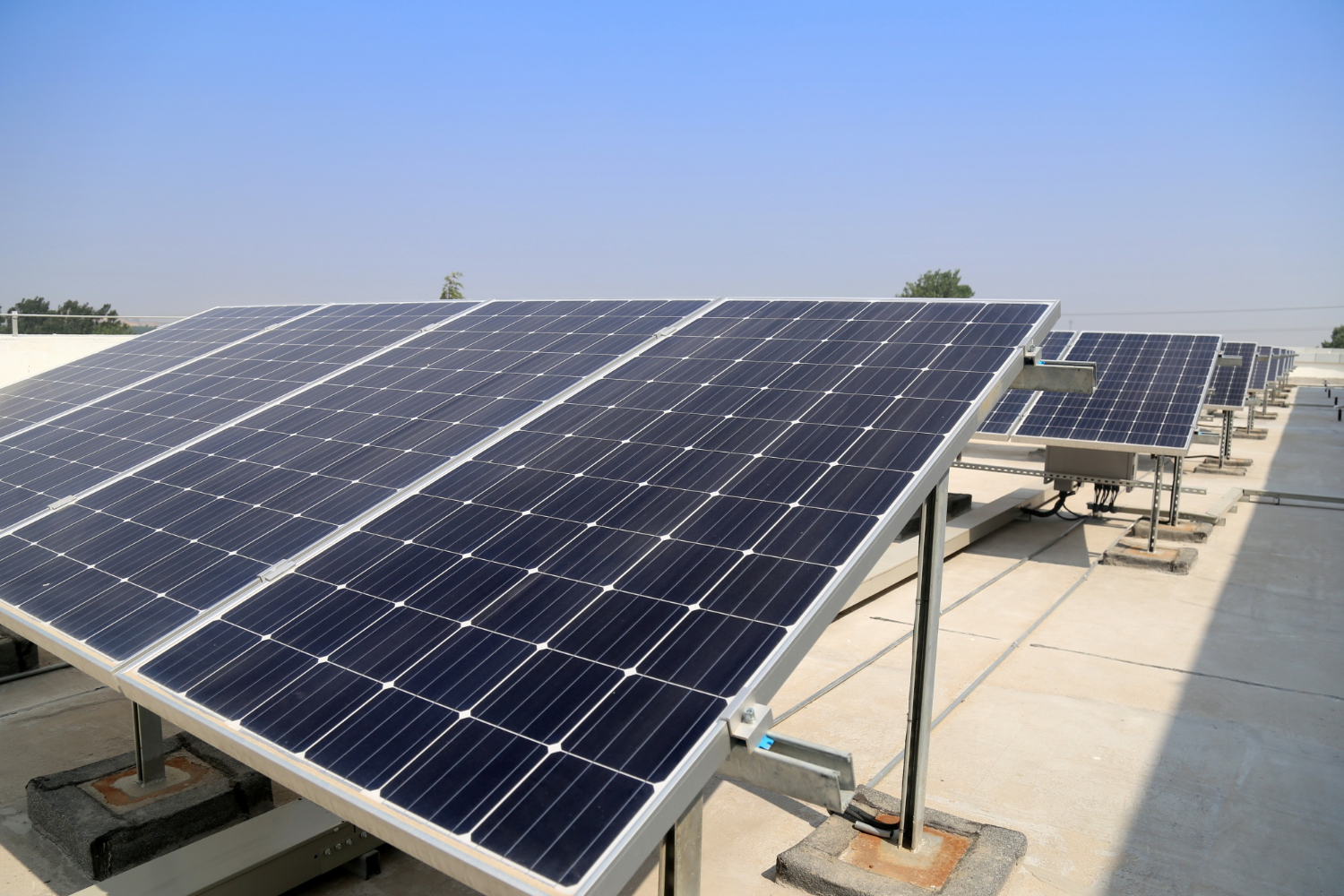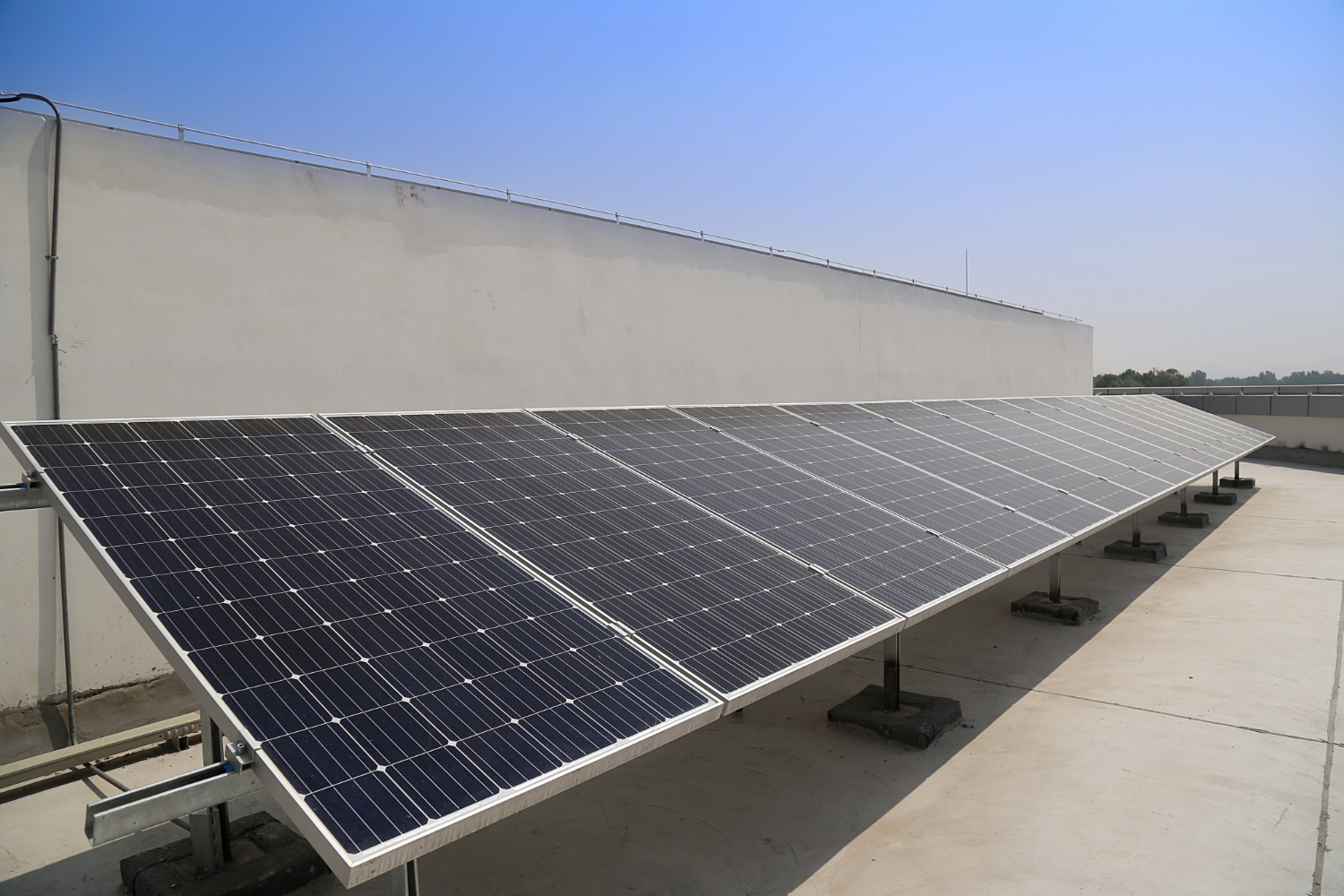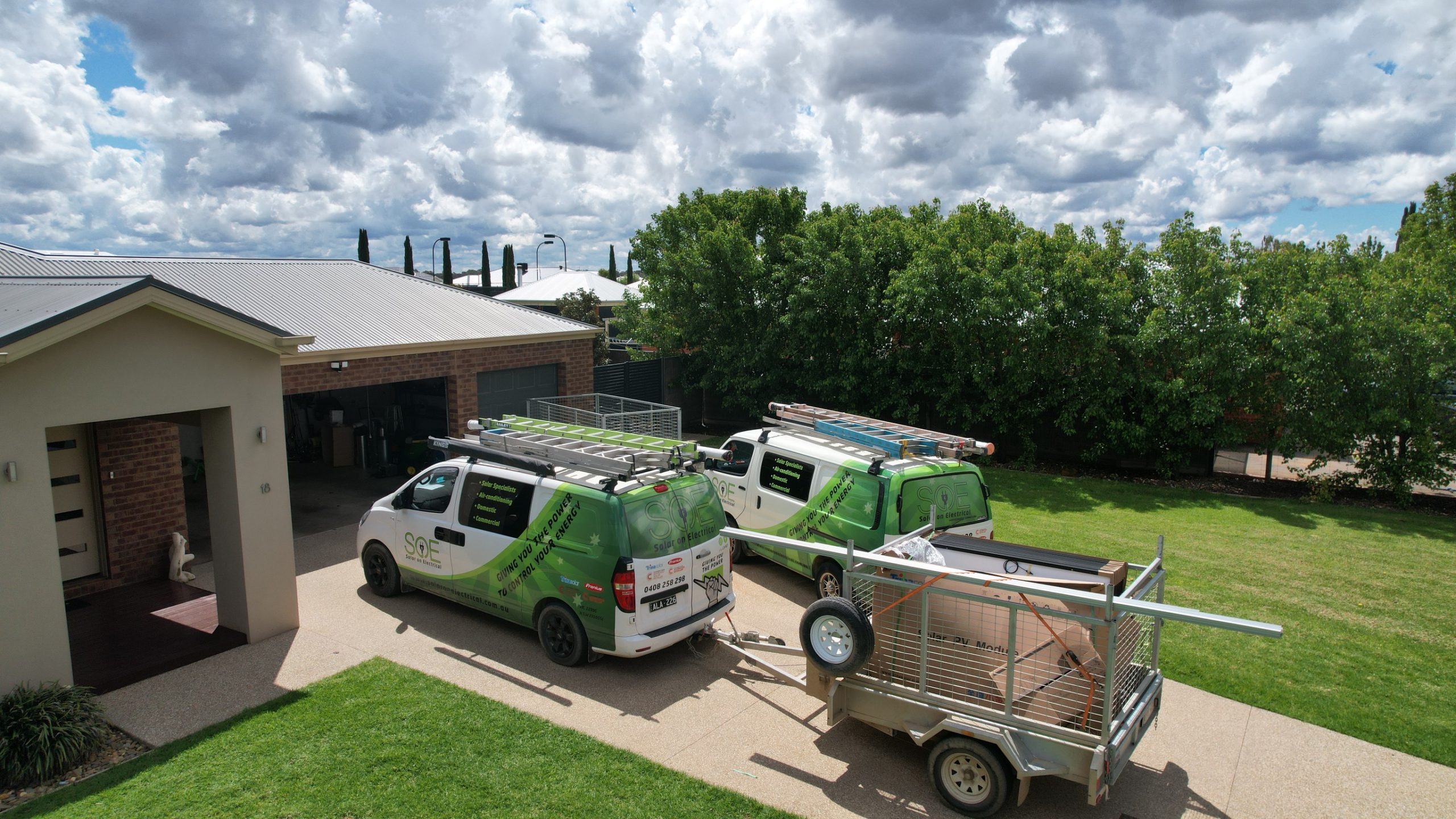
You’ve finally decided to go green – congratulations! Now, you’re faced with a choices to make. From what type of solar panels you should have to whether or not you’re going to buy solar batteries. It can be overwhelming, however, there’s one very important thing you shouldn’t forget to consider.
Are you staying on the grid or are you ready to go off grid?
In every solar power community, you’ll find those who prefer on grid or grid-tied solar systems over off-grid solar systems. Each side has their own merit but it’s best to remember that their preference is dependent on how each grid affects their own lifestyles.
Find the right one for you through this quick rundown of the benefits of both on grid and off grid solar systems.
As the name suggests, on grid or grid-tied solar systems are attached to the utility grid. Generally, the on grid solar system is more popularly used as it allows consumers to be covered by their utility company even if their solar systems fail and malfunction.
Aside from this peace of mind, on grid solar systems also allow consumers to “sell back” any excess electricity produced by their solar panels to the system. This is called net metering. After a certain period of time, the credit the consumer built by selling back their excess energy can be cashed out at the end of their billing cycle.
However, a major disadvantage of on grid solar systems is that if the utility grid blacks out, so will their households. This is done to avoid accidents from electricity produced by solar power systems while utility workers work to bring the power back on.
Off grid solar systems on the other hand is pretty self-explanatory – it means that your solar system is not attached to any utility grids. While less popular than on grid solar systems, this is still offered by companies like Solar On Electrical.
Off grid solar in Bendigo as are quite popular given that it provides consumers with complete independence from the grid. This system is also a great choice for remote communities and underdeveloped areas where utility grids don’t reach.
These same advantages are its own disadvantages as well.
Off grid solar systems have a greater upfront cost because it requires solar batteries, which tends to deteriorate fast. Additionally, any surplus electricity produced will go to waste because it has no utility grid to feed it back to.
In conclusion, on grid and off grid solar power systems have their own pros and cons. If you live with your family and need a stable source of electricity while still looking to cut down your electricity bills, you may best go with an on grid system. Solar in Moama are usually on grid systems due to its proximity to the city.
However, if you’re looking to be more self-sufficient and prefer living away from the city, an off grid solar power system might just be the right fit for you.
There’s no right or wrong choice, only the best fit.
Get a free energy audit from Solar On Electrical and take the first step to renewable energy.

Across Australia, the percentage of houses with rooftop solar panels continue to increase. It’s understandable given its advantages like lower energy price and positive environmental impact. However, before you jump into this green wagon, there are several things to consider.
The cost of solar panels and solar panel installation has gradually decreased over the years due to technological advancements and government subsidies. However, getting your own solar system still requires a sizable investment. Aside from the financial costs, it also takes quite a learning curve to understand what fits best for you and how to take care of it in order to get your money’s worth.
To help you decide whether or not solar power is the right option for you and your home, here are 7 things you should consider.
Before even considering solar power, check first if your house is located in a place that receives sizable amounts of sunlight throughout the year. Luckily, in Australia, this isn’t that much of a problem. Even luckier, if you’re looking for solar panels in Shepparton, you’re looking at approximately 4 hours of sun per day. That generates around 6 kWh if you have a 1.5kw system, 12 kWh if you have a 3kw system and 20 kWh if you have a 5kw system.
Aside from your home’s location, also consider your roof’s situation. If it’s too old or damaged, it might not be able to support your solar panels’ weight. It’s best to get it checked by a professional first and get the necessary fixes done.
Yes, there’s more than one type of solar panel and none of them are made equal.
There are two major types of solar panels; photovoltaic solar panels and solar thermal panels. As the name suggests, photovoltaic solar panels use solar cells to directly convert sunlight into electricity. Solar thermal panels on the other hand use mirrors to concentrate sunlight.
Photovoltaic solar panels are more commonly used. However, don’t make this your main decision-maker. Consider things like maintenance, availability, and warranty before making your decision.
To learn more about the right type of solar panels for your needs, consult a licensed solar panel installation company. Solar On Electrical offers free consultations, and covers Victoria homes including solar power in Shepparton.
There are two types of warranties you have to be aware of when purchasing solar panels: limited product warranty and limited power warranty.
Limited product warranty for most solar panels sold in Australia lasts for 10 years. This assures you, the customer, that any manufacturing defects – within reason- found in your solar panels within ten years is covered by the manufacturer. This includes the EVA, the glass, and the structure, among other things.
Limited power warranty, on the other hand, lasts for about 25 years. This is the solar panel warranty you most likely heard from retail companies. It pertains to how much a solar panel’s performance will drop over time. For example, a company’s limited power warranty may state that after 10 years, your solar panels will be at 91.2% minimal power output and by 25 years, it will likely drop to 80.5%.
When having your solar power system installed, check out your installation company’s solar products. The warranty certificate offered by their solar retailer must be supported by the 100% Australian registered company that imported the panels.
As previously stated, solar panels can take up a lot of your funds. After considering the aforementioned factors, it’s time to sit down and look at your financing options.
Not many can pay for a solar power system installation out of pocket and so several financing options have been made available. This includes green loans, mortgage inclusions, leasing, power purchase agreements, and personal loans.
Do your research accordingly and choose the best financing option fit for you and your family.
Your Solar Power Contractor
Your solar panels are only as good as your solar power contractor. Just like in choosing the right solar panel type and brand for you, you should also “shop around” before signing a contract with a solar power contractor and installation company.
Installing solar panels is both a home improvement and electrical project, so you have to choose a company that you trust. Choose a company that provides end-to-end services, from installation to maintenance. Additionally, check the Clean Energy Council website for approved solar retailers.
This list includes Solar On Electrical, which provides different financing options as well solar Shepparton installations.
There are many factors to consider when buying solar panels. It goes beyond the costs. As a long-term investment, it’s not advisable to just cut corners without proper research. For your safety and the longevity of your investment, we hope you consider the factors laid out above and have a greener future.

Whether you’re installing solar panels to primarily reduce your carbon footprint or to lower your electric bill, it’s important to remember that solar panel installation can be a hefty investment. It’s partly the reason why so many decide against it despite its known benefits.
However, thanks to the green movement options have been made available for homeowners to save money while installing solar panels. You can reduce the average cost of a solar system from $15,000 to somewhere below $10,000 or even lower thanks to these options.
On the average, most Australians pay $10,750 to install a 10kW solar system even more if solar batteries are included. It varies from city to city. For example, families looking for Bendigo solar services may pay $5,350 including GST and federal rebate for a 6kW solar panel system. Another family in Melbourne may pay higher fees.
Given that it takes roughly four years for solar panels to pay for themselves, it’s really best to explore different options to finance this investment. Here are five ways to finance your home’s solar panels without getting broke.
Green loans were first introduced in Australia back in 2018. It’s a type of credit offered to individuals and companies on the basis that the money borrowed will be used for something the financial institution considers to be environmentally-friendly.
And you can’t get more environmentally-friendly than with solar panel installations.
Banks are walking the talk with the Bendigo and Adelaide Bank installing solar panels in their Bendigo headquarters back in January 2022. They had a 200kW solar system installed to improve their bottom line.
Generally, green loans are considered the best option when you can’t pay for your solar panel installation out of pocket. Green loans do not only have a low interest rate but it also has options for long-term payment schemes. However, the downsides are that it’s only offered by limited financial institutions and has very strict eligibility criteria.
If you’re considering applying for green loans, check out these banks:
Studies have shown that solar panels increase the value of a home. A report by Zillow showed that homes with solar-based energy systems sold 20% faster and for 17% more money than non-solar homes.
While this may be true, including solar to your mortgage while buying a home may be the most risky out of all the five options in this list. It increases the value you’re going to borrow from the bank and if you’re slow to pay it off, then you might end up paying a lot more.
One of its only advantages is that it consolidates your debt, making it easier to focus on paying it off.
Consider this option after thorough research and financial advice.
Solar leasing is also known as “rent-a-roof” or “rent-to-own solar” schemes. With the cost of solar panels decreasing, it’s not as popular as it was before. This option is primarily more advantageous for larger commercial systems where savings will easily outweigh the costs of the system.
However, some solar installers in Bendigo still offer this scheme. Basically, in this agreement, you won’t pay any upfront costs for your solar system installation. Instead, the whole cost of the system is paid off by monthly payments and you won’t own the solar system until it’s fully paid off.
If you move houses, you’ll be required to pay an outstanding balance to legally end the arrangement.
Solar power purchase arrangements or solar PPA’s are agreements that allow a solar system installation company to install the system for free in exchange for your agreement to purchase solar power from said panels at a lower price compared to purchasing power off the grid.
While this sounds good – no upfront costs, no traditional repayments, free maintenance – a major con of this financial payment option is that you won’t be owning the solar panels.
Unlike green loans, personal loans are a lot more flexible. Personal loans are offered by almost all financial institutions and it won’t be requiring you to have sourced a solar system before it’s released. Given that all financial institutions offer personal loans, you can compare and contrast a lot more to find the best fit for you.
The disadvantages of personal loans are that its interest tends to be higher than green loans and it requires you to have cash in hand and a good credit score for approval.
Investing in a solar system takes a lot of consideration and funds. That’s why it’s best to be aware of all the possible financing options you may explore. The best way to finance this investment is based on your personal situation and financial standing – it differs from person to person.

Did you know that approximately 10% of Australia’s electricity between 2020 to 2021 was generated by solar panels? 30% of the households in the country has already installed rooftop solar panels, cutting down their electric bill up to 60%.
Now, with those numbers, it’s tempting to call solar panel installation companies just right at this moment if not for the initial installation cost. Installation cost is the number one reason why people are still hesitant in installing solar panels into their own home.
To help you make an informed decision, here are reasons why solar power in Echuca, Shepparton, and other towns in Australia is still a worthy investment this 2022.
Solar systems installed by accredited companies are equipped with the “smarts” to indicate to your appliances to use solar power first before getting energy from the grid. With electricity costing 20-40c per kWh from your typical electricity retailer, that’s a lot of money saved in a year!
Additionally, there are solar feed-in tariffs that you can explore as a homeowner. These refers to arrangements wherein a solar system owner is paid for the solar energy they send back to the grid. The rates vary per state with the governments providing different rules and guidelines.
Contact your local Echuca solar panels installation company today.
Studies have shown that solar panels increase the value of a home. A report by Zillow showed that homes with solar-based energy systems sold 20% faster and for 17% more money than non-solar homes.
Solar panels also provide a higher return on investment (ROI) than most other home improvement projects. This is due to several factors including the buyer’s preference to green living as well as solar systems’ financial impact towards the buyers’ energy consumption.
When installed by an accredited professional, solar panels come with a warranty that can last up to 25 years. The average lifespan of a solar panel is actually beyond its warranty period as they are built to withstand different weather conditions.
Besides this, solar batteries (should you choose to avail one for your home) also lasts for a while, between 5 to 10 years. Solar batteries allow you to store excess electricity generated by your solar panels which you can then use to power your home during lean months.
Once your solar system is set up and installed, there’s not much else you need to do except for the occasional cleaning. You don’t have to worry about components breaking down as solar panels don’t have any moving parts that can wear out over time.
To maintain solar panels is much like cleaning a window. All you need are running warm water, soap, and a soft cloth. However, as much as solar panels are low-maintenance, it’s best to keep an eye on your monthly power output. If you notice that the generated electricity has decreased then it’s time to call for the professionals.
Solar On Electrical offers maintenance and other post-installation services.
The cost of solar has decreased by 70% since 2010. There are also more financing options available to help cover the initial cost. Rebates are also available for all installations under 100KW you can claim STC’s ( small-scale technology certificates ).
Financing options through Plenti are available with Solar On Electrical.
Solar is a fantastic way to reduce your reliance on fossil fuels, lower your carbon footprint and save money on your energy bills. There’s no doubt that solar panels are still a worthy investment in Australia this 2022 and the years after. With the right incentives, you can see a return on your investment in as little as five years.
If you’re looking to learn more about your own personal energy consumption, sign up for our free energy audit today. For Echuca solar power system installation, contact us today.
The installation went well and Brooke’s team did an excellent job with complete professionalism. Every aspect of the work has been done neatly and looks superb. I will certainly recommend him to anyone who asks for my opinion. Excellent result.
Prompt callout and availability was always punctual. His staff were courteous to deal with and polite. Day to day operations of our business continued without a hitch while the solar installation took place.
Brooke was instrumental in covering large sections of rural Victoria and NSW and has developed a significant amount of knowledge in his time. I have complete faith in Brooke’s quality of work and work ethics, especially when it comes to customer service.
Recent Comments